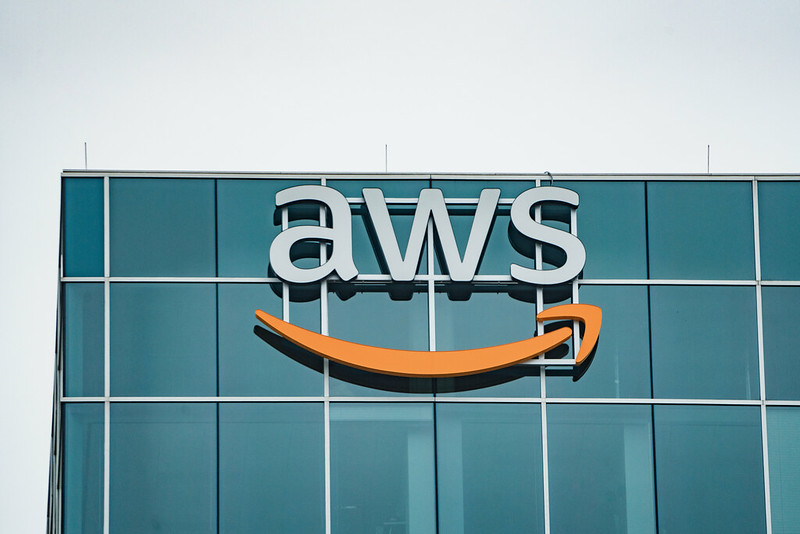The new normal for millions of people represents a near-total dependence on Amazon’s cloud-computing operation, Amazon Web Services (AWS), and places a substantial portion of our professional and social lives in the hands of a private monopolist. AWS is the dominant market leader in the industry, with a 48 percent market share.
The home confinement forced on most Americans by Covid-19 has created a new dependency on internet-based services for work and for play. Although using a variety of applications gives many users the sense that they are supporting many different companies, this is a façade.
This new normal represents a near-total dependence on Amazon’s cloud-computing operation, Amazon Web Services (AWS), and places a substantial portion of our professional and social lives in the hands of a private monopolist.
The internet-based services enabling remote work and play have experienced unprecedented growth because of Covid-19 restrictions. Netflix’s new subscriber growth increased by 47 percent over the past month. The communications platform Slack added 2.5 million additional users in just one week, and the videoconferencing software Zoom was downloaded by more than 600,000 new users in one day last week and has recorded a 21 percent increase in users since December.
But these three booming applications—and many others like them—all depend on the cloud computing power of AWS. In essence, AWS lets any company outsource its computational and storage needs, to save it the expense of buying its own equipment.
And the coronavirus outbreak has made AWS more indispensable than ever. Zoom, Slack, Netflix, Reddit, and Twitter all depend on AWS for their operations. Furthermore, General Electric, Apple, and Yelp also significantly depend on AWS, paying Amazon what are essentially digital rents for the use of the AWS computer infrastructure. Apple alone pays Amazon $30 million per month for AWS. Even government agencies rely on and utilize AWS for critical aspects of their services.
| “This extreme degree of dependence on a private entity to provide essential services, whether by the military or our temporarily homebound society, presents a danger to our country that we should not allow.” |
The success of AWS has made the division Amazon’s most profitable operation. The most critical sector in the cloud computing market is the Infrastructure as a Service (IaaS) sector, which supplies clients with computer servers, data storage, and networking hardware.
AWS is the dominant market leader in the industry, with a 48 percent market share in the IaaS sector, more than triple that of its closest competitor, Microsoft.
Amazon has used its dominant market share in various anti-competitive ways that choke competition. Amazon’s computer infrastructure provides it the ability to essentially spy on its competition.
For instance, MongoDB is a popular software tool for organizing data available through AWS; Amazon quickly copied it. Such behavior by Amazon simultaneously destroys the current competition and discourages future competitors from entering the market, further entrenching Amazon’s dominant position.

Thus, when AWS inevitably fails to operate properly, as it did in March and June of 2018, significant aspects of the internet also fail.
In another example, a single mistake by an AWS employee inadvertently took down the websites of the Securities and Exchange Commission and Vermont Public Radio. In effect, substantial portions of the internet depend on the equipment, policy, and competency of a single private entity.
Our national defense could wind up with the same problem. In 2017, the Department of Defense (DoD) issued a request for information and began the selection process for a viable supplier for its JEDI program, a department-wide cloud computing program that the DoD plans to create. The program will be the digital backbone of our nation’s military defense.
The DoD stated that JEDI would be utilized for “cyber defense, resilience, and the continued integration of cyber capabilities into the full spectrum of military operations.”
But the entire contract will be awarded to a single vendor. While the DoD did award Microsoft the contract after a formal bidding process, Amazon successfully obtained a temporary injunction against the US government in February.
If Amazon—or Microsoft for that matter—is awarded the full JEDI contract instead of splitting the infrastructure among multiple vendors, critical aspects of our nation’s defense system could be controlled by a single corporation.
This extreme degree of dependence on a private entity to provide essential services, whether by the military or our temporarily homebound society, presents a danger to our country that we should not allow.
The recent series of Covid-19 restrictions imposed on the general public has revealed that substantial portions of our applications suffer from precisely this dangerous kind of dependence on Amazon.
We can find straightforward solutions to this problem in our antitrust laws, which can prevent these kinds of dangerous concentrations of private power and are particularly prudent when concentrated power controls vital infrastructure.
One simple remedy would be to separate Amazon’s e-commerce divisions from AWS, in a similar fashion to the AT&T divestiture. AT&T was broken in 1984 into seven regional companies and a separate company that retained its long-distance and manufacturing services. Likewise, Amazon could be broken up into regional cloud computing divisions and a separate e-commerce entity.
Covid-19 has only exacerbated our risky dependence on Amazon. These new circumstances, and eventual reports by the House of Representatives and the Federal Trade Commission, both of which are investigating Amazon’s anti-competitive offenses, provide ample evidence for federal, state, and private litigants to break up the company, so that we prevent this dangerous concentration of private power and invigorate competition in this industry.
Daniel A. Hanley is a Policy Analyst at the Open Markets Institute
ProMarket is dedicated to discussing how competition tends to be subverted by special interests. The posts represent the opinions of their writers, not necessarily those of the University of Chicago, the Booth School of Business, or its faculty. For more information, please visit ProMarket Blog Policy.






